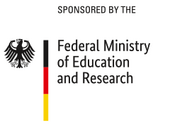The automotive industry in Germany is undergoing major changes. Car manufacturers have to combine more and more software and hardware to enable autonomous driving and electromobility. The high computing power required and the evaluation of many sensor data require a centralized, high-performance system architecture. The functionality of all components must be considered and integrated. In addition, individual components such as radar sensors are becoming increasingly complex.
In order to meet these requirements, car manufacturers (OEMs) must also consider the entire system. A cost-effective technology for this is virtual prototypes (VPs), which enable computer-aided simulation of systems before they are manufactured. The new system architectures require automotive suppliers (Tier1 and Tier2) to be involved by OEMs in the specification of the overall system at an early stage. To make this possible, these VPs must also exchange and deliver to other manufacturers. Due to the increasing complexity and interdependencies of virtual prototypes, it is no longer sufficient to consider only them individually. It is also becoming increasingly important to exchange test and application scenarios. This makes it possible to detect errors in the specifications at an early stage and to avoid expensive iterations.
The PaSVer project aims to create the technical basis for the exchange of scenarios along the value chain in electronics design. To this end, procedures are being developed that should make it possible to efficiently simulate and debug complex scenarios for heterogeneous systems based on SystemC AMS. This should ensure that the application scenarios of car manufacturers are taken into account at an early stage in electronics development and that errors can be avoided.
Partners
- COSEDA Technologies GmbH

